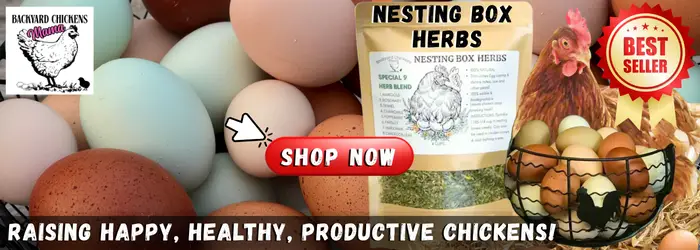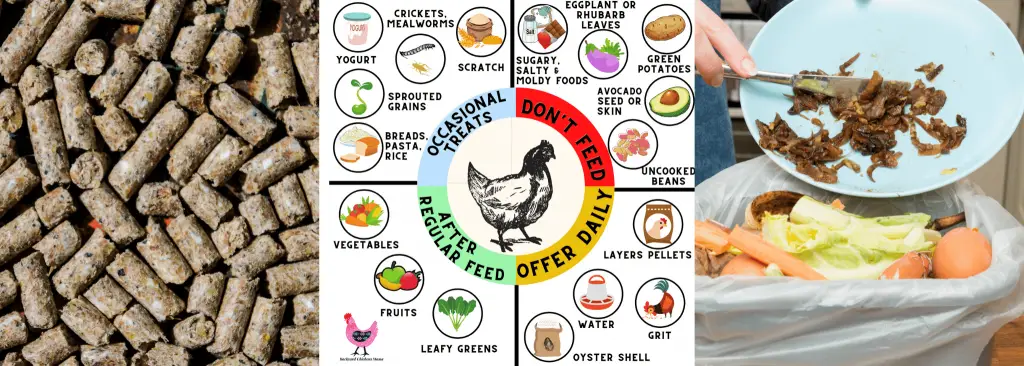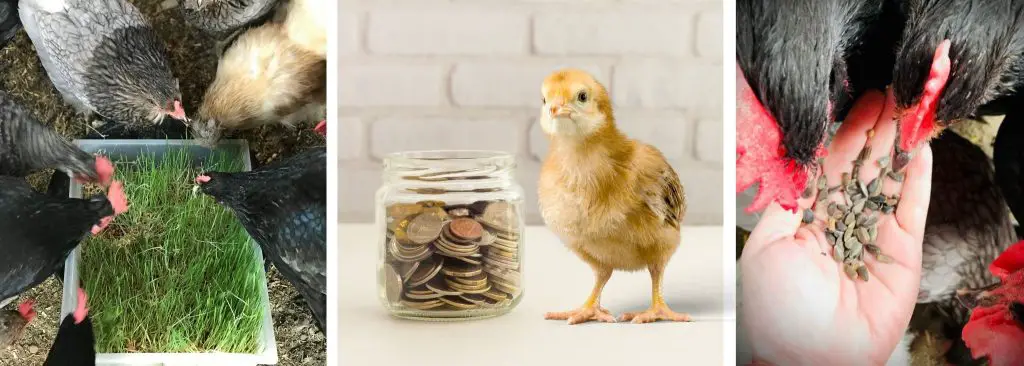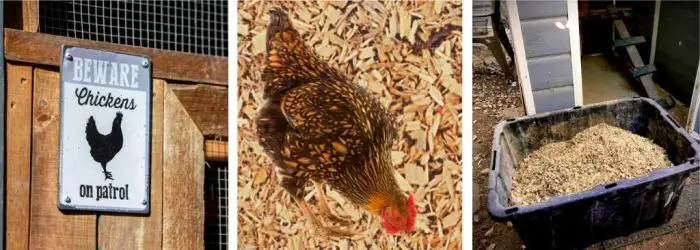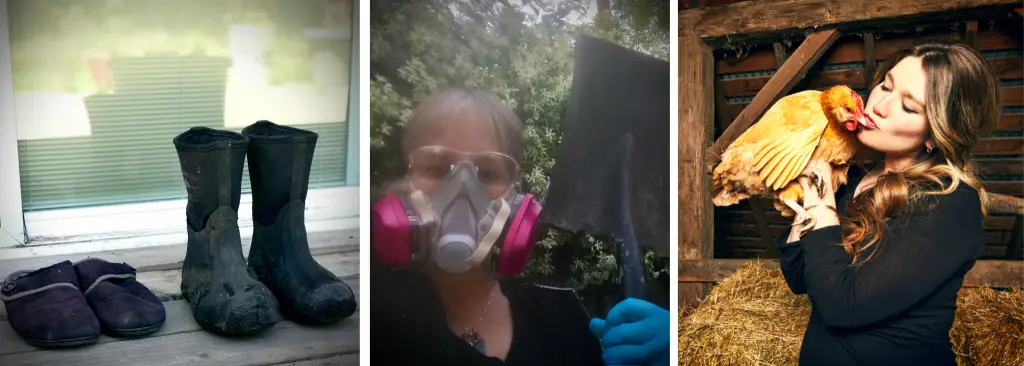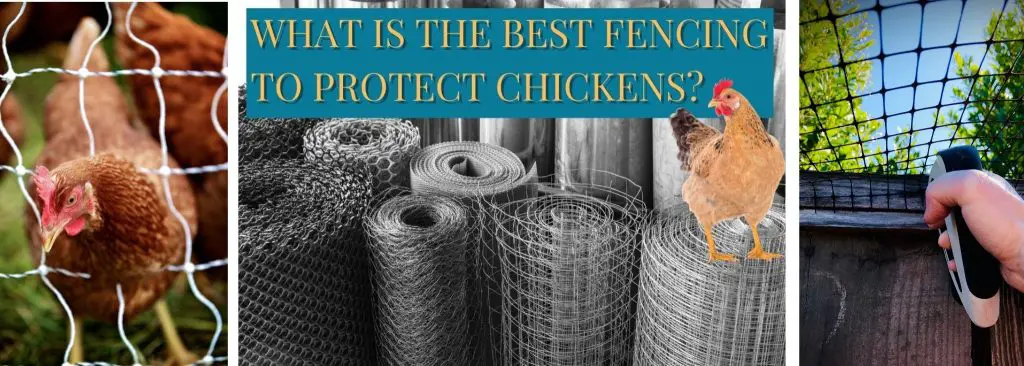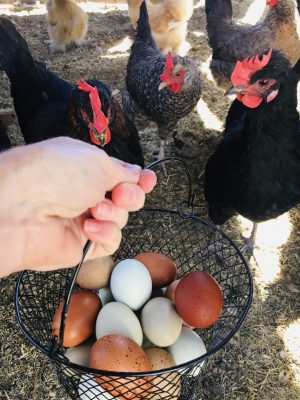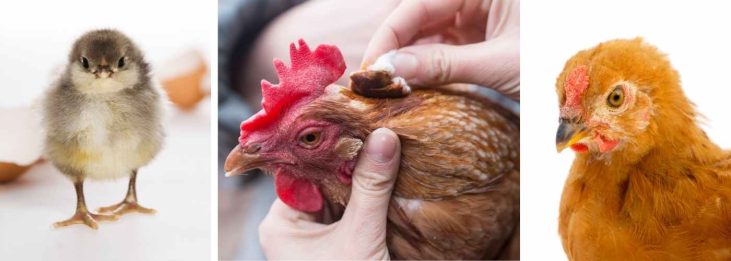
If you knew how to get chickens to live longer, would you? By providing a nutritionally balanced diet, appropriate living conditions, recognizing and tending to any health issues promptly, you can increase the time you have with them.
How long do chickens live? Backyard chickens live anywhere between 3-7 years of age, but can live longer. There are many factors that can increase this number. By following these 5 tips, it will help to increase the time you have with your chickens.
How to Get Chickens to Live Longer- 5 Best Tips
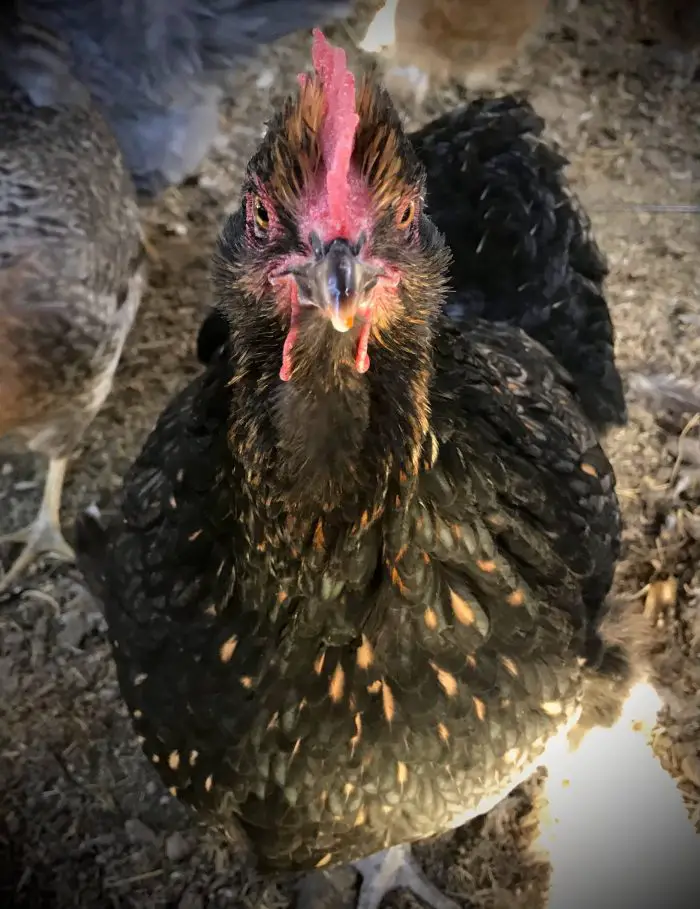
As a chicken owner, it is our responsibility to make sure that we provide them with the necessities to live a good quality of life. But what about doing things to improve their length of life?
1. Limiting Chicken Treats
We all love it when we go out to our chickens and they come running to us. To them, we are their food fairy or treat keeper! But feeding chickens too much food (and especially too many treats) can lead to an overweight chicken.
Fatty Liver Hemorrhagic Syndrome
- The number one health issue that is seen in overweight chickens is fatty liver hemorrhagic syndrome, FLHS.
- FLHS is known as a silent killer in chickens.
- When a chicken is overweight, fat accumulates on top of the liver, weakening it.
- Over time, this can cause the liver to split.
- When the liver splits, it causes internal bleeding.
- An overweight chicken may not show any other symptoms of FLHS, but is commonly just found deceased in the coop or nesting box. This is from internally bleeding to death.
| HEALTH ISSUES RELATED TO OVERWEIGHT CHICKENS |
|---|
| FATTY LIVER HEMORRHAGIC SYNDROME (FLHS) |
| PROLAPSED VENT |
| EGG BINDING |
| LAYS VERY LARGE EGGS |
| DECREASED FERTILITY |
| EGGS WITH MULTIPLE YOLKS |
| HEAT STROKE |
| BUMBLEFOOT |
| BROKEN LEGS |
Egg Issues in Overweight Chickens
- A heavy chicken is more likely to suffer from fertility issues, developing eggs with multiple yolks.
- Heavy chickens are also more likely to have difficulties with egg laying.
- They will often develop a prolapsed vent trying to pass an overly large egg.
- Sometimes an egg will become stuck, causing the obese hen to become egg bound.
Health Issues in Overweight Chickens
- Due to the excess weight, they are prone to developing bumblefoot.
- They can suffer from a broken chicken leg, just jumping down from their perches.
- Larger chickens are also at increased risk of developing heat stroke. Chickens do not have sweat glands and have a hard enough time cooling down during extreme heat. Adding a few pounds of fat to this makes it even more difficult.
2. Feeding Nutritionally Balanced Chicken Feed Daily
Each adult chicken needs about 1/4 lb of feed a day. This comes out to about 1/2 cup of layers pellets for each adult hen.
Larger breeds can have a little bit more feed and bantam breeds, slightly less.
Note: A chicken knows when it is full and will not overeat. Once a chicken’s crop is full, a signal is sent to its brain telling it, “You are full,” and they will stop eating. Humans get this same signal, but tend to ignore it.
Always feed a chicken’s regular feed first. Treats can be served later in the day. Just like many humans, a chicken will choose treats over regular food.
Treats should only equal 10% of a chickens daily diet. This comes out to about 1 TBS of treats a day for an adult chicken.
3. Recognizing and Treating Common Chicken Health Issues
Knowing what the most common chicken health issues are and having enough knowledge to treat them or have a vet available to treat them will help increase the life expectancy of your chickens.
Many of the most common chicken health issues are things that can be treated at home.
- Coccidiosis
- Wry Neck
- Chicken Pasty Butt- Pasted Vent
- Sour Crop
- Impacted Crop
- Pendulous Crop
- Bumblefoot
- Fowl Pox
- Thrush
- Respiratory Issues
- Mites, Lice and other Parasites
- Marek’s Disease
4. Chicken Living Conditions
There are many factors regarding a chickens living conditions that can impact how long they will live; space, ventilation, coop cleanliness, stress.
Inside Chicken Coop Space
Each adult chicken needs a minimum of 2-4 square feet of chicken coop space. Larger breeds, such as Giant Cochins could use more and bantam breeds, less. By providing sufficient inside coop space, you will have less fighting, bullying and have happier and healthier chickens.
Outside Chicken Coop Space
Each adult chicken needs a minimum of 8 square feet of outside chicken coop space. Chickens needs sufficient space to peck and scratch the ground, forage for food, dust bathe and flap their wings. If you provide them with enough space, they will be happier and healthier.
Chicken Coop Ventilation
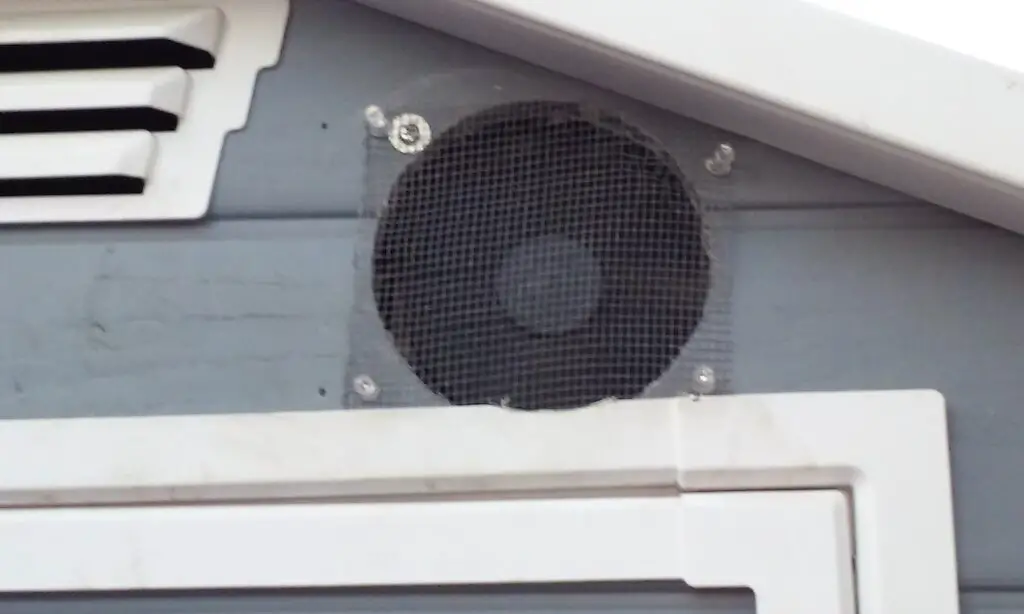
A chicken coop should have 1 square foot of venting for each 10 square feet of coop floor space. So, if you have a 4′ x 10′ coop, you would need 4 square feet of venting. This could be 4, 1′ x1′ windows or 8, 6″ x 1′ vents.
Cleanliness in Chicken Coop
Regular coop maintenance will decrease the likelihood of transmitting diseases. Chicken coop bedding shouldn’t smell like ammonia. If it does, it’s either time to change it out or if you are using the deep litter method, add another 3-4 inches of bedding to it.
Your chickens are locked up in the coop all night long. Make sure it is smelling fresh and ammonia free. There are several natural ways to keep your coop smelling fresh!
Take special care when cleaning out your chicken coop and also interacting with your chickens. There are several diseases that a chicken can pass to a human.
“Backyard poultry can carry Salmonella germs even if they look healthy and clean. These germs can easily spread in areas where the poultry live and roam.”
CDC Newsroom
Are Your Chickens Stressed?
There are several things that can be stressful to a chicken. The idea is to eliminate as many of the stressors as you can. The less stress, the happier and healthier your chickens will be. Happy and healthy chickens are more likely to outlive a stressed and unhealthy chicken.
| STRESSFUL EVENTS FOR CHICKENS |
|---|
| MOVING LOCATIONS (SHIPPING CHICKS) |
| BEING CHILLED |
| HEAT STRESS |
| PREDATORS |
| LACK OF FOOD AND WATER |
| CROWDED LIVING CONDITIONS |
| UNSANITARY LIVING CONDITIONS |
| BARKING DOG |
| TOO MUCH HANDLING |
| DISEASES/ILLNESSES |
| IMPROPER DIET |
| CHANGE OF FOOD |
| INJURY |
5. Protection for Chickens During Free-Ranging
Out in the wild, the life expectancy for chickens is only 1-2 years. This is because they are prey for many different animals; raccoons, opossums, skunks, bobcats, hawks, owls, bears, coyotes and more!
If you allow your chickens to free-range, provide them with a little extra protection.
- Hawk netting will help to protect from arial predators, such as hawks and owls.
- Electric fencing will help to increase the land your chickens can free-range on, but protect them from many other outdoor predators.
- Provide things that your flock can run for cover from if being chased by a predator. This can be bushes, a table to hide under, etc.
CONCLUSION: How to Get Chickens to Live Longer- 5 Best Tips
| 5 TIPS FOR LONGER LIVING CHICKENS |
|---|
| 1. LIMIT CHICKEN TREATS |
| 2. FEED NUTRITIONALLY BALANCED FEED |
| 3. RECOGNIZE AND TREAT COMMON HEALTH ISSUES |
| 4. PROVIDE HEALTHY LIVING CONDITIONS |
| 5. PROTECT FREE-RANGING CHICKENS |
